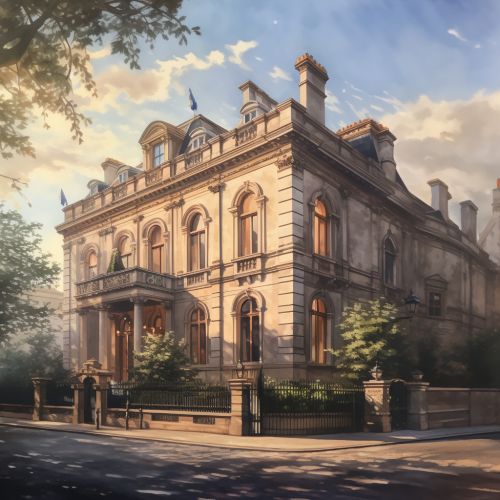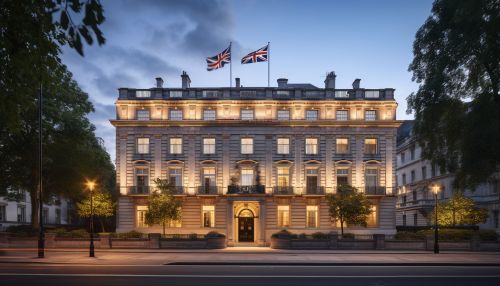Royal Society
History
The Royal Society, formally known as The Royal Society of London for Improving Natural Knowledge, is a learned society and the United Kingdom's national academy of sciences. Founded on 28 November 1660, it was granted a royal charter by King Charles II. The society fulfills a number of roles: promoting science and its benefits, recognizing excellence in science, supporting outstanding science, providing scientific advice for policy, fostering international and global co-operation, and education and public engagement.


Founding and early years
The origins of the Royal Society lie in an "invisible college" of natural philosophers who began meeting in the mid-1640s to discuss the new philosophy of promoting knowledge of the natural world through observation and experiment, which we now call science. The foundation of the Royal Society can be traced to the meetings of natural philosophers at Gresham College in London, where the first Curator of Experiments of the Royal Society, Robert Hooke, was also a professor.
Fellowship
The Fellowship is a body of more than 1,600 outstanding individuals who represent the international scientific community. The Fellowship includes the Fields Medal, the Nobel Prize, and the Copley Medal winners. Fellows are elected for life and gain the right to use the post-nominal letters FRS (Fellow of the Royal Society) after their names.
Publications
The Royal Society's motto 'Nullius in verba' is taken to mean 'take nobody's word for it'. It is an expression of the determination of Fellows to withstand the domination of authority and to verify all statements by an appeal to facts determined by experiment. The Society’s philosophical transactions, first published in 1665, is the world's longest-running scientific journal.
